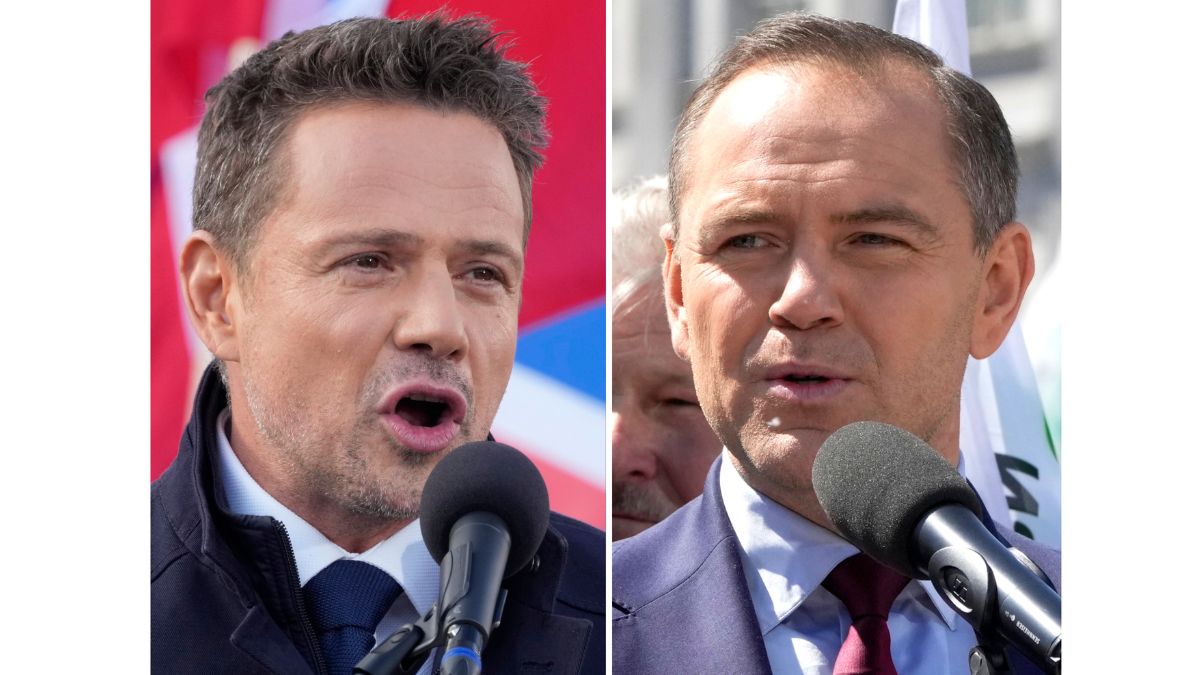Voters in Poland went to the polls on Sunday (June 1) in a high-stakes presidential election that pits two sharply contrasting visions for the country’s future- one rooted in pro-European Union liberalism, the other in nationalist conservatism. The outcome could significantly influence Poland’s stance within the EU, its domestic social policies, and its position on the war in Ukraine.
With polls showing a dead heat between Rafal Trzaskowski, the pro-EU mayor of Warsaw and ally of Prime Minister Donald Tusk, and Karol Nawrocki, a right-wing historian backed by the conservative opposition, the election is being watched closely both at home and abroad.
What are the main differences between the candidates?
Rafal Trzaskowski, 53, represents the centrist Civic Platform party and has campaigned on a progressive, pro-European platform. A victory for him would bolster the reformist agenda of Prime Minister Donald Tusk’s government and open the door to significant changes such as:
Legalising civil partnerships for same-sex couples
Easing the near-total abortion ban
Deepening Poland’s integration within the EU
Trzaskowski is seen by supporters as internationally respected, liberal-minded, and committed to restoring democratic norms. “He’s educated, speaks many languages, is intelligent, just all round great,” said Agnieszka Lewinska, a 56-year-old voter near Warsaw.
In contrast, Karol Nawrocki, 42, is a nationalist who appeals to traditional, Catholic voters and has the backing of the conservative Law and Justice (PiS) party, which ruled Poland from 2015 to 2023. His platform emphasises:
National sovereignty over EU integration
Stricter curbs on immigration and refugee benefits
Reinforcing Catholic values and conservative policies
Supporters like Lila Chojecka, a 60-year-old pensioner in Warsaw, say Nawrocki represents “hope for Poland” and a return to “Catholic values.”
Why does this election matter beyond Poland?
The result will have significant implications for the European Union, NATO, and Ukraine.
Poland is a key EU member and one of NATO’s most active supporters of Ukraine. Trzaskowski supports continued military and humanitarian aid to Kyiv and aligns closely with Brussels on foreign and security policy.
Nawrocki, however, has voiced skepticism about expanding NATO to include Ukraine and opposes offering long-term social benefits to the more than one million Ukrainian refugees in Poland. In his final campaign appearance, he visited a memorial for Poles killed by Ukrainian nationalists during World War II, calling it “a genocide against the Polish people.”
For Ukraine, the result may shape Poland’s future support as the war with Russia drags on and Kyiv seeks greater diplomatic backing.
Domestically, the Polish presidency holds the power to veto legislation and command the armed forces, making it a key check, or enabler, of the ruling government’s agenda.
Impact Shorts
More ShortsWith 336 electoral districts and nearly 38 million people, Poland’s presidential race is expected to be decided by narrow margins. The far-right, which earned over 21 per cent in the first round, could swing the final result, especially if its voters rally behind Nawrocki. Trzaskowski edged ahead in the first round with 31 per cent of the vote, just one point above Nawrocki’s 30 per cent.
Exit polls are expected shortly after voting ends at 9:00 pm local time (1900 GMT), with final results due by Monday. The election, described by political analyst Anna Materska-Sosnowska as a “real clash of civilisations,” will set the course for Poland’s political and social identity for years to come.
)